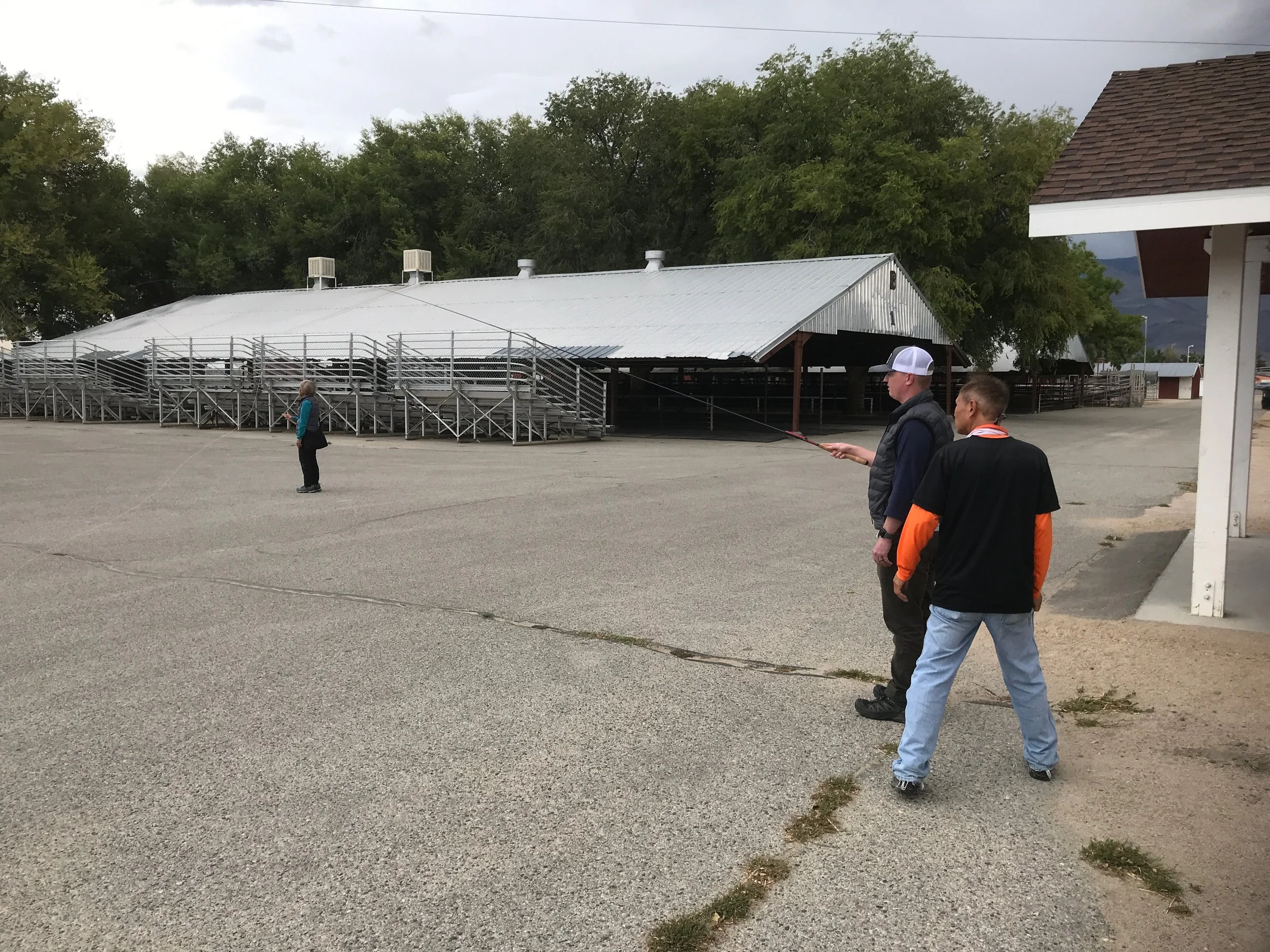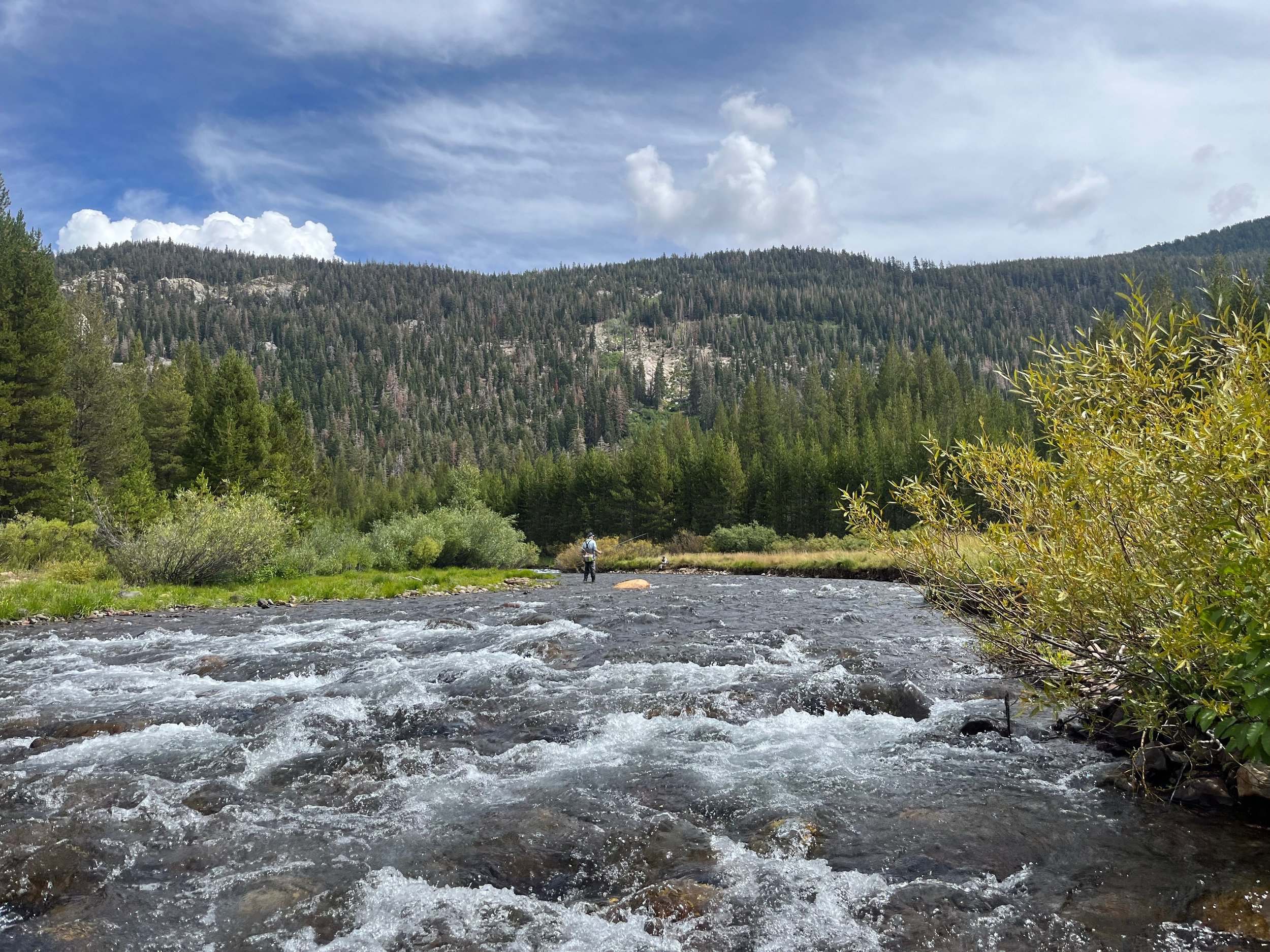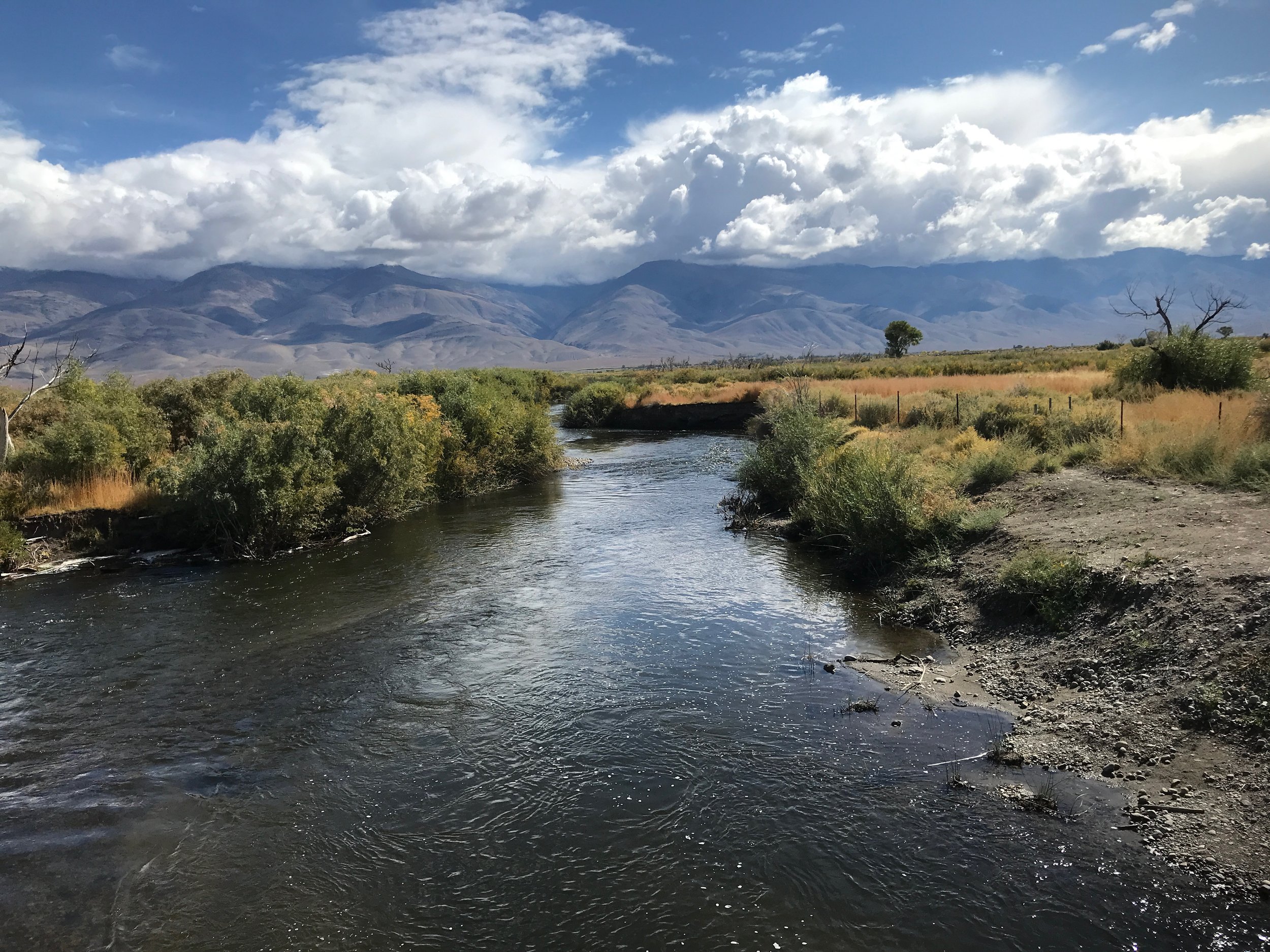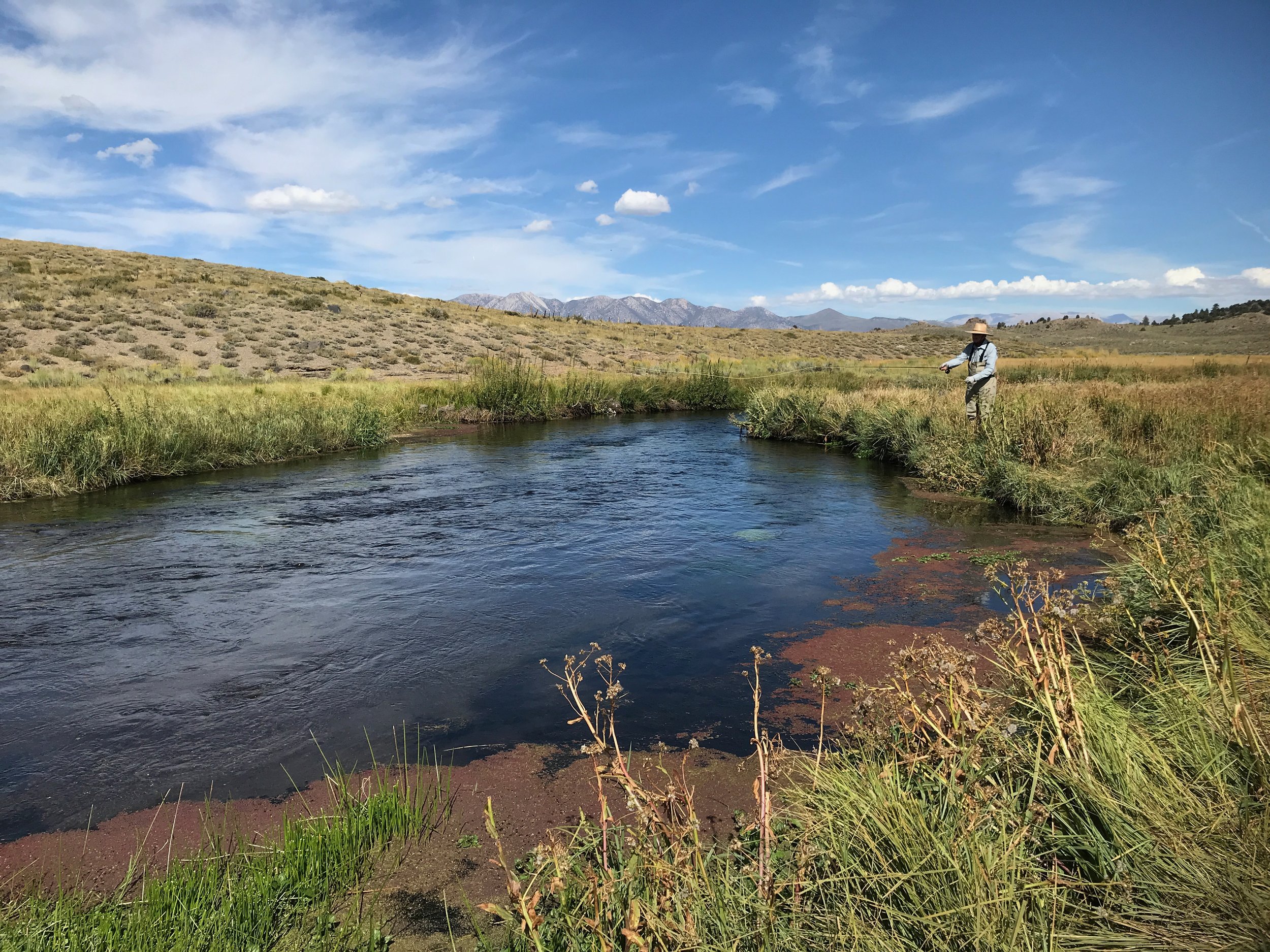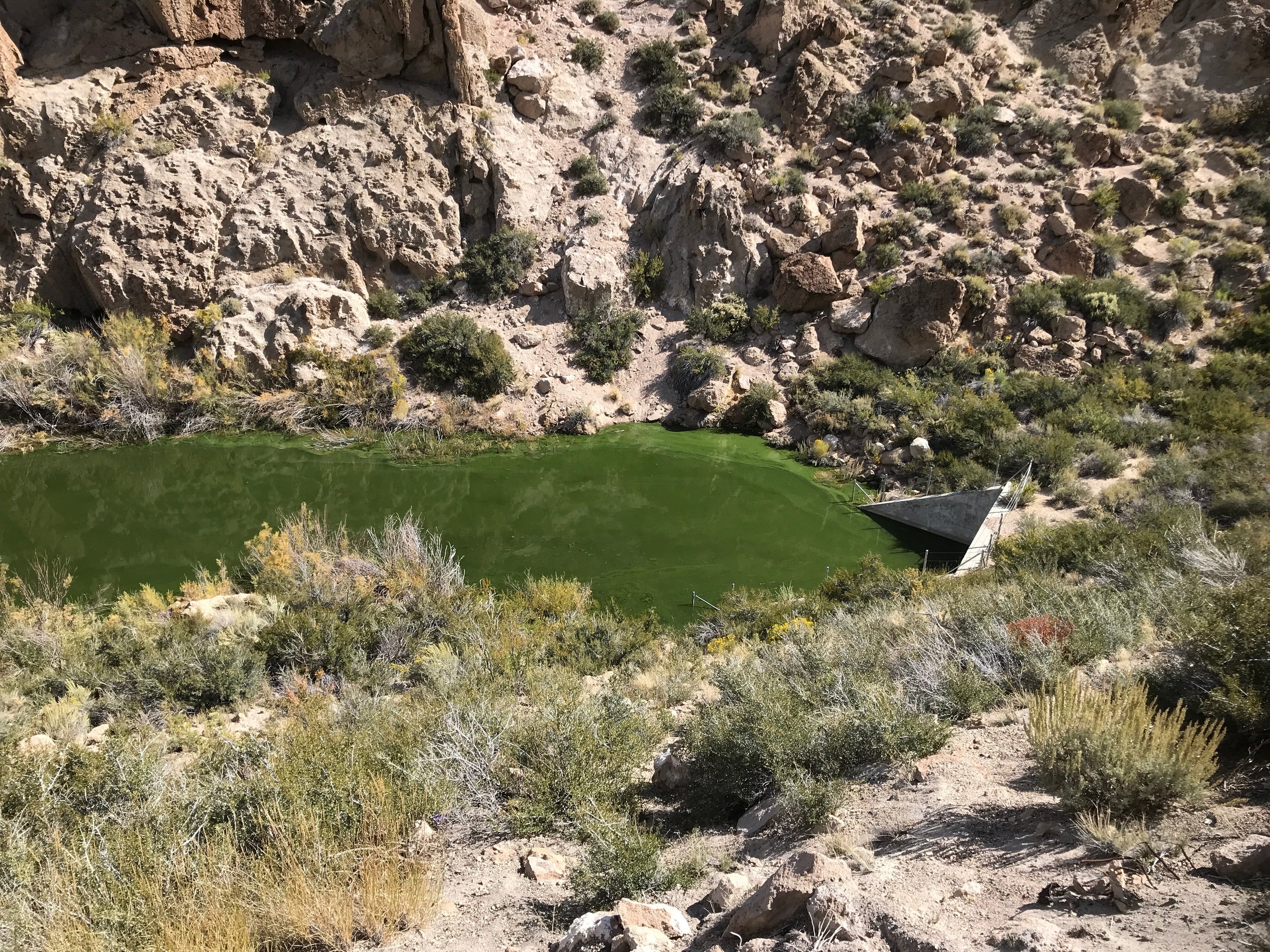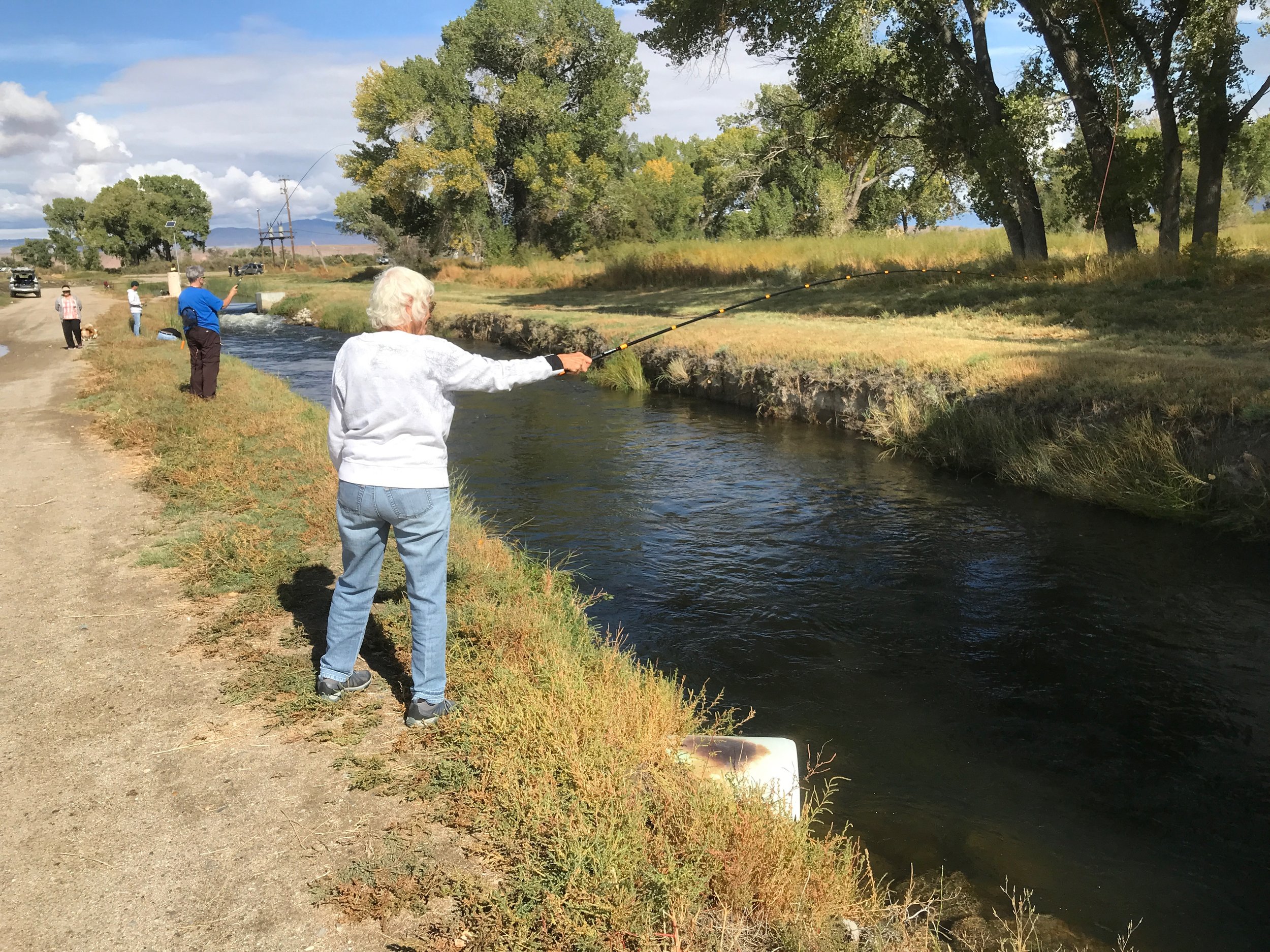To me, Fall is heater in the morning and air conditioner middle of the day when I’m driving out to go fish. Trees are turning yellow and red at upper elevation waters in the Eastern Sierra. This last week the White Mountains and the Sierra Mountains got a dusting of snow on the tops of the peaks. Backcountry lakes and streams are seeing spawning brook trout and brown trout. A brook trout in full spawning colors is another sign of fall to me. Hatches of caddis, mayflies and midges are keeping the trout actively feeding on adults, emergers and nymphs. This is the time of year to hunt big trout with streamers.
Luong Tam from Tenkara Tanuki teaching how to cast a Tenkara rod at the Tri County Fair Grounds where he held Tenkara Boot Camp. Look for Tenkara Boot Camp next Fall.
San Joaquin River
Reds Meadow – Agnew Meadows:
This continues to be a weekend fly fishing opportunity as the road into the San Joaquin River is only open on Saturday and Sunday. My favorite dry flies for this stream are size 14 or 16 Adams parachutes, elk hair caddis and royal Wulff’s. I also like using a size 12 or 14 stimulator. The best dry fly you can use on the San Joaquin River is your favorite dry fly because you will fish it with confidence.
San Joaquin River flows look like June not early October.
Lower Owens River
Wild Trout Section:
Flows of 300 to 500 CFS will continue through the winter and will determine if we will be able to wade and fly fish. For now at flows of 400 CFS the river is not worth fly fishing. If you want to tempt wading the river and fish with lots of weight on the tippet with your nymphs it will produce a few fish for fly fishers.
With flows of 400 CFS there are few places for fly fishers to fish from the banks.
Hot Creek
Interpretive Site:
Even though it’s the end of summer, Hot Creek is finally offering good dry fly fishing opportunities with caddis and trico mayflies. The trico hatch has been scarce as few of the tiny mayflies have been hatching. A size 22 trico spinner first thing in the morning is producing a few trout off the surface. There is mid-morning hatch of size 20 gray caddis that can be fooled with spent partridge caddis, parachute caddis or X-caddis. Afternoons have been slow. Fishing with caddis and hopper imitations is producing a few trout.
Mid-morning hatches of size 20 gray caddis have the wild brown trout and rainbow trout feeding on the surface.
Hot Creek
Canyon Section:
With decreasing flows and clearing water the canyon is finally offering fly fishers good opportunities with nymphs and dries. Work nymphs under an indicator or with a Euro rig. Fish with hot spot pheasant tail nymphs, olive quilldigons, bead head flash back pheasant tail nymphs and tiger midges. If you’re looking to catch fish on the surface with dry flies look for those areas in the canyon that has an abundance of rising trout. Caddis have been the most productive insect to imitate. This is prime time to work meat type streamers for trophy brown trout.
Fly fishers using nymphs and dries are catching lots eight to 12 inch browns and rainbows.
Upper Owens River
Above Benton Crossing Bridge:
This area continues to offer good numbers of wild brown and rainbow trout from 7 to 12 inches. These fish are taking nymphs and dries. Hatches of mayflies and caddis are what the trout are feeding on. Olive caddis pupae and olive elk hair caddis in size 16 are fooling the trout. There is a mid-day mayfly hatch that using an Adams parachute or a blue wing olive parachute is fooling the trout. Euro nymphing with stoner nymphs, green/gold prince nymph and a hot spot pheasant tail nymph is producing good numbers of juvenile trout and the occasional trophy trout.
Fly fishers are finding trout from Crowley Lake to Benton Crossing Bridge. Photo by Richard Lancaster.
Upper Owens River
Below Benton Crossing Bridge:
Fly fishers looking for trophy trout migrating up from Crowley Lake will find them in deep holes from the lake to the monument. Euro nymphing with green/gold Prince nymphs, Stoner nymphs and Richard’s gold ribbed hare’s ear are fooling trophy brown trout to 20 inches. Key to success is covering water finding the holes thar are holding trophy trout.
Crooked Creek arm of Crowley Lake is green as are a few other spots on the lake.
Crowley Lake:
Fishing with young of the year Sacramento perch streamer patterns in 10 to 15 feet of water in and around the weed beds is producing trout. Fly fishing the lake this year is requiring anglers to find new methods or maybe old methods to consistently produce trout. Pulling streamer patterns around weed beds or in the holes in the weed beds on a full sink line is an old productive method of fly fishing the lake. Wolly buggers in olive, perch balanced leeches and olive matukas are productive fly patterns to strip around the weed beds. Best way to fish in and around the weed beds is from a float tube.
Tenkara Boot Camp participants Ginny Hanawalt and Carol Murphy practicing what they learn from Luong Tam on Bishop Creek Canal.
Bishop Creek Canal:
Behind the Old Ford Dealer:
Weekends on the canal is finding lots of anglers fishing with bait, lures and flies. Nymphing continues to be the most productive method to fly fish the canal. Bead head flash back pheasant tail nymphs, green/gold Prince nymphs, hot spot pheasant tail nymphs and stoner nymphs continue to produce trout on the Euro rig and under an indicator. If the wind comes up in the afternoons try fishing with a hooper pattern like a Moorish hooper, parachute hopper or a Dave’s hopper.

